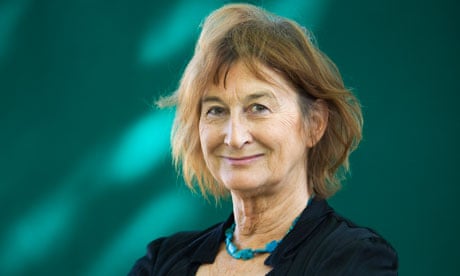Victoria Glendinning, author of lives of Edith Sitwell and Anthony Trollope, is being forced to self-finance the research for her next work as a result of the shrinking market for serious biography.
"Getting an advance is very, very hard if you want to do something a bit different to what you've done before," said Glendinning, who is shortly to set off on a self-financed trip to south-east Asia to research a major new work on the life of statesman and adventurer Sir Stamford Raffles, best known now as the founder of Singapore.
"I'm not commissioned. But I'm feeling quite confident somehow," she added. "I will write 50 pages and try to sell it."
Jeremy Lewis, author of studies of Graham Greene and Cyril Connolly, suspects that the publishing industry is undergoing a backlash after a long spate of huge advances for books that were always unlikely to make much money. "Writing a biography is time-consuming and labour-intensive and is getting increasingly difficult, but it will be sad if the only people who can afford to write them are salaried dons," said the writer, who is embarking on a biography of David Astor, a former editor of the Observer, for Jonathan Cape. "I have a fifth of the £50,000 I got for my book on Connolly in 1992, but I'm not complaining. The publisher in me disapproved of those absurd advances, anyway… publishers were behaving stupidly."
Editors tried to push him towards a better-known figure, such as Arthur Conan Doyle, but in a piece for the Oldie magazine he argues there is no need for successive studies of the same few literary figures. "Sixty years ago Jonathan Cape told Norman Lewis that he couldn't go wrong with a life of Captain Cook; his modern equivalents seem obsessed by Hitler, Churchill and Conan Doyle, but take a dim view of less familiar names," he writes.
Glendinning came up against the same prejudice: "This new book will be a biography of a fascinating man… in my opinion, this is the book of my life. I thought publishers would all be thrilled. But no. They want Victoria to do something exactly the same as before."
She was asked, instead, if she would write about the Brontë sisters: "I nearly fell off my chair. It is playing safe to a ridiculous level. The Brontës have been so well written about. They don't need another book and I cannot go on that tragic trip with them again."
Many would argue that the literary biography began with Elizabeth Gaskell's study of the life of her friend Charlotte Brontë, which appeared in 1857. But its heyday may have arrived in the late 1980s when Michael Holroyd, acclaimed biographer and husband of Dame Margaret Drabble, capped his success with Lytton Strachey with a four-volume study of George Bernard Shaw, earning him a reported advance of more than £600,000 from Random House. Large advances also went to Peter Ackroyd for his biography of Dickens and more recently to Adam Sisman, whom Weidenfeld paid around £100,000 to write his biography of Hugh Trevor-Roper.
Andrew Kidd, the non-fiction publisher-turned-agent, suggests writers and publishers now have to work harder to breathe life into the genre: "It may just need to be reinvented because readers are bored by the form. There were a number of projects that publishers paid a lot for upfront, on the back of what had been a wave of successes. Then they discovered the market had fallen away and took significant losses."
The theory was the trend might correct itself in time, said Kidd, but he wonders if readers still engage with serious projects in book form: "There has been a change in the reference culture and big serious books have not rebounded as one might have hoped."
Glendinning believes writers now have to "downgrade our expectations. I am quite old and I have raised my family and so it doesn't matter so much. But it is a bit worrying for others," she said.
Editor Clara Farmer, who works on non-fiction titles at Chatto & Windus, admits advances have shrunk, but believes publishers have become more discerning.
"In general, it has always been very rare for a writer to make a living, but biography is a longer road than others because of the research," she said. She has an exception to the rule though, in Chatto's upcoming biography by Hermione Lee about novelist and poet Penelope Fitzgerald. "The right author on the right subject will work. The advances may not be as big as for celebrity biographies but people still want these books."

Comments (…)
Sign in or create your Guardian account to join the discussion